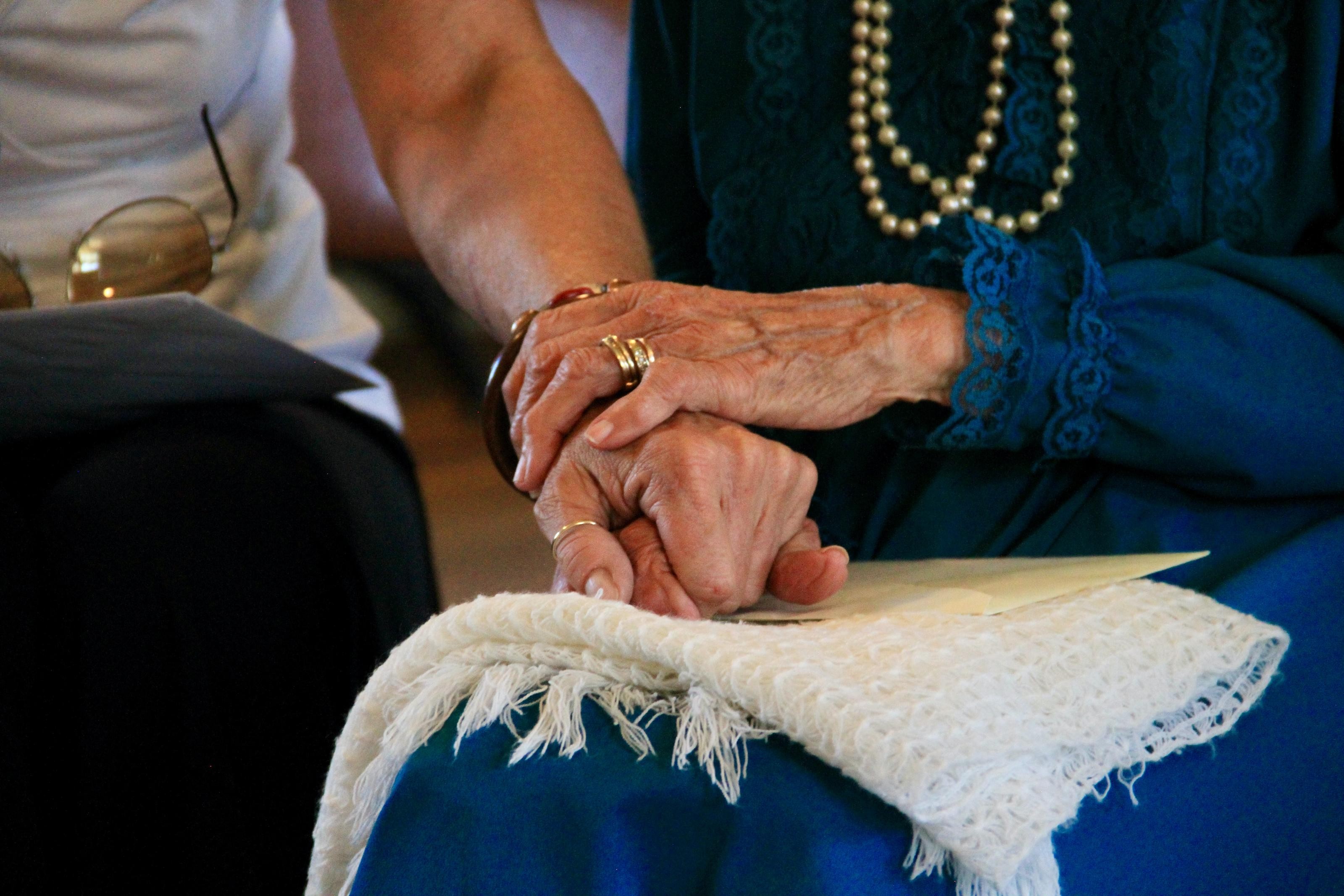Unleashing the Power of Activities for Seniors: Revitalize Your Golden Years with Fun and Engaging Pursuits
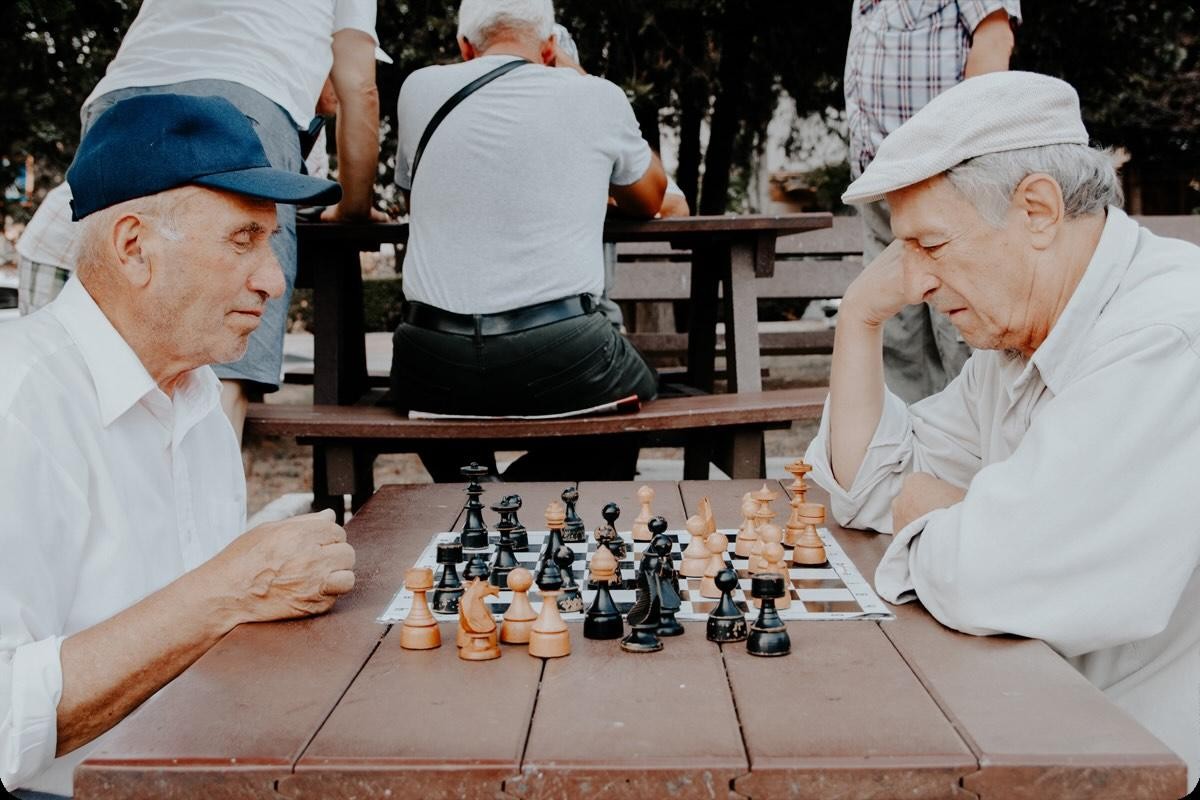
Discover a world of activities for seniors that promote physical and mental health. Learn how family members can facilitate fun pastimes, explore outdoor adventures in your local park, and understand the significance of family history in shaping activities for older adults. Unveil the joy of staying active and connected in your golden years!
Unleashing the Power of Activities for Seniors
In today's fast-paced world, it's easy to overlook the importance of engaging activities for seniors. As we age, our social circles may shrink due to various circumstances, and this can lead to feelings of loneliness and isolation. However, participating in meaningful activities can significantly enhance the quality of life for older adults, providing numerous physical and mental health benefits (Source).
Understanding the Importance of Activities for Older Adults
Engaging in enjoyable activities is more than just a way to pass time; it's an important aspect of healthy aging. Research suggests that older adults who participate in meaningful activities are happier, healthier, and have a longer lifespan. Activities that stimulate the mind and body can also lower the risk for developing health problems such as dementia, heart disease, stroke, and some types of cancer. Furthermore, these activities foster resilience, enabling seniors to better cope with life's challenges (Source). Physical activity is particularly beneficial as it helps maintain muscle mass and strength, improves physical function, decreases the risk of falls or injury from a fall, and can even improve cognitive function (Source: 1; 2; 3).
How Family Members Can Facilitate Fun and Engaging Activities
Family members can play a helpful role in facilitating fun and engaging activities for their elderly loved ones. From playing card games to teaching a new skill or sharing favorite music, family members can help create meaningful experiences that contribute to seniors' well-being. They can also assist in finding local community resources such as free or discounted courses for older adults, group tours at local museums, or volunteering opportunities. Moreover, family members can help their loved ones navigate the digital world, enabling them to participate in virtual activities or classes that they might otherwise miss out on (Source 1; 2). However, it's important to respect the autonomy of seniors and only step in when necessary, ensuring that they continue to make their own choices (Source).
Exploring a Variety of Fun Activities for Seniors
As we age, staying active and engaged becomes increasingly important for maintaining our physical health and mental well-being. Fortunately, there are a multitude of fun activities for seniors that can be done in the comfort of their own homes or within their local communities. These activities not only promote wellness and independence but also provide opportunities for social interaction, which can greatly enhance the quality of life (Source).
Outdoor Adventures: Walking in the Local Park and Beyond
Imagine starting your day with a leisurely stroll in the local park. Walking is an excellent low-impact exercise that promotes mobility and cardiovascular health. For those who seek more adventurous outdoor activities, consider joining hiking clubs or participating in ecotourism adventures. Gardening is another great way to stay active outdoors while also offering therapeutic benefits. For seniors living in senior communities, excursions to museums, nature preserves, or even theme parks provide a change of scenery and an opportunity to explore new places (Sources: 1, 2, 3).
Playing Games: From Board Games to Memory Games
Playing games is not only fun but also stimulates cognitive function and improves memory. Board games, card games, memory games, and even video games offer a fun way to keep the mind sharp. Did you know that the risk of dementia was 15 percent lower in board game players than in non-players? Additionally, online collaborative games can provide opportunities for social interaction with family members or friends who might live far away (Sources: 1, 2).
Tapping into Creativity: Art, Music, and More
Engaging in creative activities such as painting, drawing, or playing a musical instrument can be an enjoyable way to spend time and improve mental health. Participating in arts activities may also improve cognitive function and self-esteem. For seniors with early-stage dementia, theater improvisation has been shown to improve quality of life and social interaction. Singing in a community choir is another wonderful way for seniors to stay active and connected. So, why not pick up that paintbrush or join a local choir? (Sources: 1, 2).
Diving into the Benefits of Senior Living Communities
Senior living communities have evolved significantly over the years, offering a variety of services and amenities that can greatly enhance the lifestyle of older adults (Source). These communities are not merely places to live but hubs of social interaction, engagement, and wellness. They offer an array of opportunities for seniors to stay active and surrounded by friends and family.
Senior living communities today are bustling with events and activities designed to enhance whole-person wellness. For example, they offer life enrichment programs, which include a rich calendar of on-campus activities and community outings designed to work around any physical or cognitive limitations residents may have (Source).
For instance, imagine a senior who loves playing games but has limited mobility. In a senior living community, they can enjoy board games with their peers without having to worry about transportation or accessibility.
Moreover, these communities also provide opportunities for volunteerism, allowing seniors to lead book clubs or craft programs, among other things. This not only keeps them engaged but also allows them to contribute positively to their community.
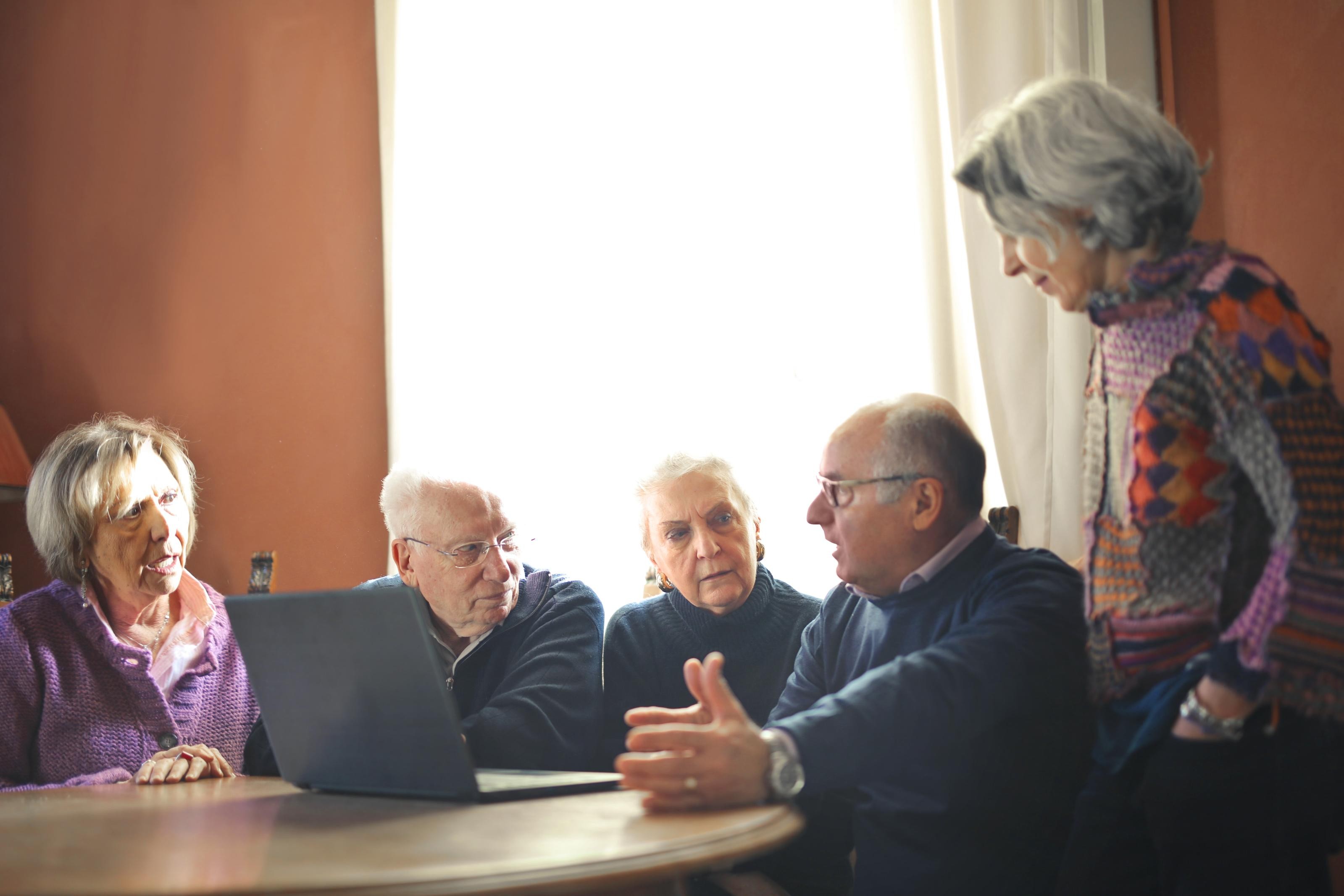
Activity Ideas Tailored for Different Physical Abilities
In senior living communities, there is a strong emphasis on promoting physical health through various activities tailored to different abilities. For example, these communities often offer planned fitness programs such as Chair Yoga, Tai Chi, and strength training (Source).
Imagine an older adult who used to enjoy dancing but now has mobility issues. They can participate in Chair Yoga classes in the community, which allow them to stay active while accommodating their physical limitations.
Furthermore, there are programs like the Adaptive Sports and Fitness program at MedStar National Rehabilitation Hospital that empower individuals with physical disabilities to pursue healthy and active lifestyles through recreational and competitive sports (Source).
Activities seniors can do with limited mobility
- Exercise for seniors with limited mobility: Having a disability or decreased mobility doesn’t always mean you can’t exercise. Even seniors with limited mobility can reap those benefits through guided water movements, chair yoga, and seated exercises.
- Join a book club: Reading helps seniors stay sharp and creative. Moving one step further by joining a book club allows seniors and caregivers to socialize with others, bond, and share their opinions on literature.
- Music therapy: Music therapy has proven effective for not only those suffering from symptoms of chronic diseases, but also for seniors living with depression and sleep disorders. Seniors with a knack for music may even be able to join in, which is a great opportunity to build confidence and exercise creative parts of the brain.
Brain stimulating activities for seniors
- Continued education and lectures: Depending on your loved one’s interests, you can research and attend educational lectures and seminars held within your community. Continuing education through academic lectures, courses, and classes helps seniors to stay mentally alert, engaged, and in-touch with present-day happenings.
- Art classes: Purchase art supplies for your loved one or sign up for local art classes that both you and your loved one can attend. From watercolors and sketching to clay work and ceramics, opportunities for seniors to make art are plentiful.
- Games and puzzles: Games for the elderly are more abundant now than ever before. Both traditional jigsaw puzzles and smartphone games can help stimulate brain activity and increase mental sharpness. The trick is finding the right apps for your phone or tablet—here’s a helpful list.

Activities seniors can do by themselves
- Wii sports: Nintendo’s Wii brings outdoor sports and activity right to your home. Using simple movements and easy-to-learn controls, seniors can interact with the screen to bowl, golf, play tennis, and more.
- Garden: Gardening is a relaxing, productive way for seniors and caregivers to spend time. It’s also a perfect excuse to spend more time outdoors, which research shows is beneficial to both mental and physical health.
- Get involved in charity work: There are many ways seniors can be involved in the community, even with limitations. Reach out to charities, hospitals, or religious organizations in the area to see how your loved one can get involved.
The Role of Family History in Shaping Activities for Seniors

Family history can play a significant role in shaping activities for seniors. For instance, if a family has a history of heart disease, it would be beneficial for the older family members to engage in heart-healthy activities such as brisk walking, dancing, or gardening (Source).
Let's say a senior has a family history of obesity. Given that both genetic and environmental factors contribute to this condition, it would be wise for them to participate in regular physical activities and maintain a balanced diet (Source).
To sum up, understanding a senior's family history can help tailor activities that not only are enjoyable but also contribute positively to their health and wellbeing.
Complex med schedule? We solved it.
Hero’s smart dispenser reminds you to take your meds and dispenses the right dose, at the right time.
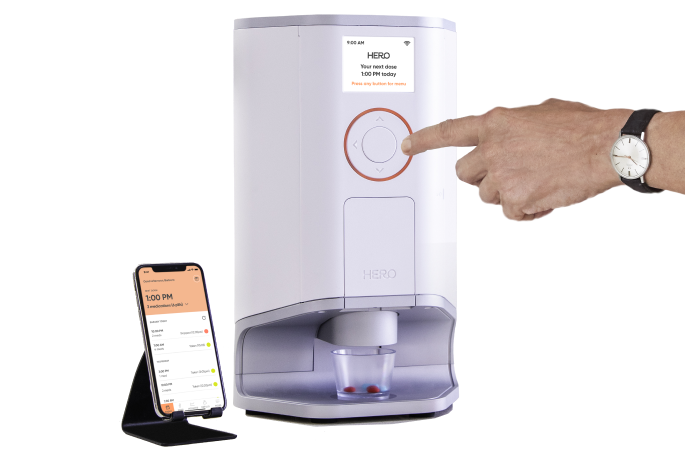
Boosting Mental Health through Engaging Activities
As we age, maintaining mental health becomes as important as physical health. Engaging activities not only stimulate the mind but also provide a sense of purpose and enjoyment. Activities that are both fun and mentally stimulating can significantly contribute to the overall well-being of seniors.
The Magic of Music Therapy for Seniors
Music therapy has been recognized as a powerful tool in promoting mental health among older adults. It evokes strong emotions, brings back heartwarming memories, and provides a way to express oneself (Source). Music therapy is not just about listening to music; it involves active participation like playing simple instruments, dancing, or singing. Even for those with no musical talent, music therapy can be an outlet for creativity, socialization, and mental stimulation. Imagine an elderly person playing a tambourine or dancing to the rhythm of their favorite music; this activity can significantly improve their mood and cognitive function. For example, music therapy has been found effective in treating older adults with Alzheimer’s disease (Source).
Exercise Classes: A Fun Way to Stay Fit and Socialize
Exercise classes offer another engaging activity for seniors that promotes both physical and mental health. Regular physical activity has been shown to prevent many common diseases, improve immune function, enhance mental health, reduce the risk of falls, and foster social connections (Source). Exercise classes designed for seniors can range from low-impact activities like Tai Chi or yoga to more energetic ones like dance or aerobics. Let's say you join a dance class; not only do you get to move your body and stay fit, but you also get to meet new friends and enjoy the music. This combination of physical activity and social interaction can significantly improve the quality of life for seniors. Plus, it's a fun way to spend time! (Source).
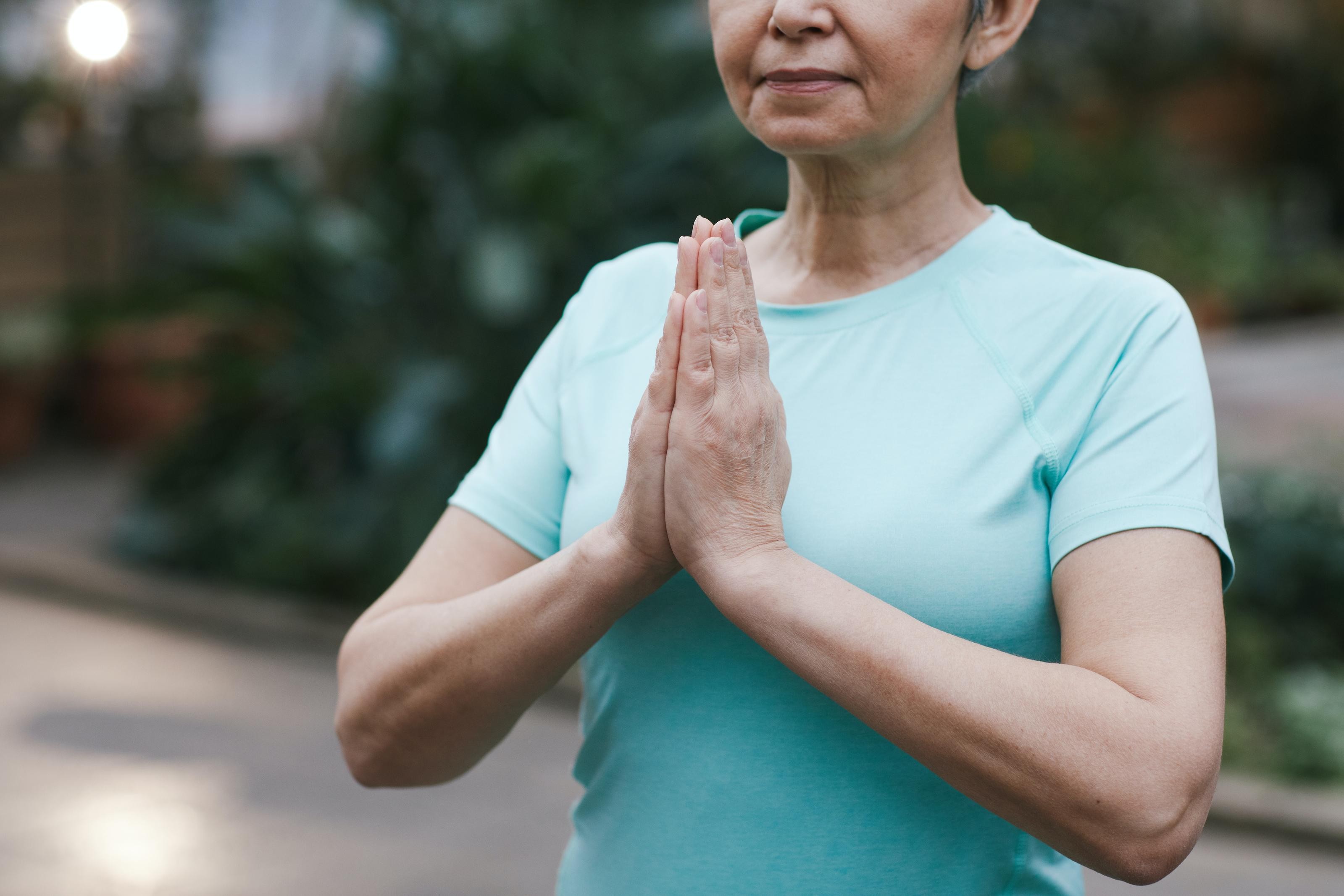
Connecting with Others through Shared Interests
Engaging in activities that foster social connections is crucial for older adults. It not only combats feelings of loneliness and isolation but also enhances their well-being by providing a sense of belonging, meaning, and purpose (Source). For instance, imagine joining a book club or a group that shares similar interests. This can be an excellent way to meet new people and form meaningful relationships. Did you know that being socially active can lead to lower blood pressure, healthier cholesterol levels, and reduced risk of heart disease? (Source)
Joining Book Clubs and Other Groups with Similar Interests
Joining book clubs and other groups with similar interests can be a fun activity for seniors. These platforms provide opportunities for older adults to engage in stimulating discussions, learn new things, and connect with others who share their passion. For example, if a senior is an avid reader, they might enjoy discussing their favorite books with others in a book club. Not only does this keep the mind active, but it also offers a huge social element (Source). Additionally, participating in educational courses or workshops at local community centers can provide seniors with new skill acquisition alongside the chance to make social connections (Source).
Spending Time with Animals: The Therapeutic Power of Pet Hobbies
Pet hobbies offer therapeutic benefits for seniors. Spending time with pets can increase opportunities to exercise, get outside, and socialize. Regular walking or playing with pets can decrease blood pressure, cholesterol levels, and triglyceride levels. Pets can help manage loneliness and depression by providing companionship (Source). For example, let's say a senior has a pet dog. They could join a local park's dog-walking club, which would not only provide exercise but also create opportunities to meet other dog owners and make new friends. Additionally, engaging in pet-related hobbies, such as attending a tricks class with their dog, can be a fun and enjoyable activity for seniors (Source).
Preserving Memories and Telling Stories
The process of preserving memories and telling stories is a powerful way for seniors to engage in meaningful activities that not only stimulate their minds but also provide a sense of purpose and fulfillment. The act of documenting one's life story can be a cathartic experience, allowing seniors to reflect on their past, appreciate their journey, and share their wisdom with future generations (Source).
Life Story Exercises: A Fantastic Way to Document Family History
Life story exercises are an excellent way for older adults to document their family history. These exercises involve interviewing an individual about their life experiences, from childhood to adulthood, capturing important milestones, achievements, and personal anecdotes. For example, the Legacy Project offers a fill-in-the-blanks approach to interviewing older adults, making it easy for them or their family members to complete. This process not only preserves personal histories but also fosters respect and recognition for the individual's life journey. Moreover, these life stories can be shared with younger generations, creating a strong sense of family heritage and continuity (Source).
Organizing Photographs and Military Records: A Journey Down Memory Lane
Organizing photographs and military records is another engaging activity that can help seniors reminisce about their past. This process involves sorting through old photos, identifying people and places, and arranging them in chronological order or by theme. Digitizing these photos using tools like Mylio Photos can make the task easier and more efficient. This tool allows users to set fuzzy dates for photos, tag people quickly, and even improve the quality of old photos with built-in editing features. Similarly, organizing military records can provide a glimpse into a senior's service history, offering insights into their experiences during that time. These organized records and photographs can then be stored safely, ensuring that these precious memories are preserved for future generations (Source).
Resources and Links for Further Exploration
As we navigate the world of activities for seniors, it's important to have a wealth of resources at our fingertips. From local events to national organizations, there are countless avenues to explore when seeking engaging and enjoyable activities for older adults.
Useful Websites and Organizations Promoting Activities for Seniors
The Administration on Aging (AoA) is a key agency in the U.S Department of Health and Human Services, designed to provide services and programs that help seniors live independently in their homes and communities (Source). Another valuable resource is the Cleveland Senior Citizens Organization, a non-profit organization dedicated to providing services to seniors over 60 years of age, promoting health, wellness, and independence (Source).
For those interested in technology, Older Adults Technology Services (OATS) from AARP provides information on affordable technology options and broadband connectivity (Source). The National Institute on Aging also offers a wealth of information on cognitive health and activities that support healthy aging (Source).
Local Events and Opportunities for Older Adults
Local community centers often host a variety of events tailored for seniors. For example, the Citrus Heights Community Center has a dedicated Senior Room where local seniors can gather to play cards, eat together, and enjoy each other's company (Source). The Houston Parks and Recreation Department offers senior programs that include creative crafts, fitness activities, walking clubs, holiday events, cultural events, and sports programs (Source).
Senior living communities also offer a plethora of activities for residents, including cooking demonstrations, excursions to museums, live concerts, and more (Source).
Remember, staying active and social is a key component to health and wellness at all ages. So whether it's joining a book club, taking up gardening, or participating in an exercise class, there's an abundance of resources available to help seniors find activities that they enjoy and that contribute to their well-being.
The contents of the above article are for informational and educational purposes only. The article is not intended to be a substitute for professional medical advice, diagnosis, or treatment. Always seek the advice of your physician or other qualified clinician with any questions you may have regarding a medical condition or its treatment and do not disregard professional medical advice or delay seeking it because of information published by us. Hero is indicated for medication dispensing for general use and not for patients with any specific disease or condition. Any reference to specific conditions are for informational purposes only and are not indications for use of the device.

